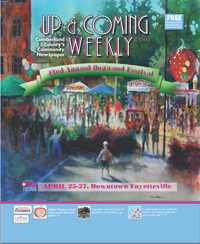 The Significance of Banned Books Week
The Significance of Banned Books Week
Banned Books Week will happen this year from Sept. 22 to 28. Banned Books Week, launched in 1982, was a response to a sudden surge in the number of challenges to books in libraries, bookstores, and schools. This annual event brings together the entire book community — librarians, booksellers, publishers, journalists, teachers, and readers — to focus on the efforts of others to remove or restrict access to books.
By drawing national attention to the harms of censorship, Banned Books Week underscores the importance of preserving the freedom to read. It serves as a reminder that book bans and censorship threaten not only access to literature but also many other rights and institutions in our society.
The 2024 Theme: 'Freed Between the Lines'
The theme for Banned Books Week 2024 is 'Freed Between the Lines.' This theme highlights the idea that we can find freedom in the pages of a book, but that freedom is threatened by book bans and censorship.
By focusing on the theme 'Freed Between the Lines,' Banned Books Week 2024 encourages people to commit to voting for the freedom to read and support policies and policymakers who uphold this right. Using hashtags like #LetFreedomReadDay and #BannedBooksWeek, individuals can show how they’re taking action on social media.
The Impact of Book Bans on Education and Society
Book challenges and bans primarily target public or school libraries, but even colleges and universities face challenges to their materials. A challenge is an attempt to remove or restrict materials based on objections, while a banning is the actual removal of those materials.
These actions limit what students can learn and what teachers can teach. Libraries level the playing field by providing access to all books to everyone, regardless of race, social background, or economic circumstances. Removing books from libraries takes them out of the hands of people who can’t afford to buy their own copies, thereby restricting access to new ideas and hindering societal progress.
How to Take Action and Support the Freedom to Read
Supporting the freedom to read involves committing to vote for policies and policymakers who support this right. It’s crucial to engage in local and national elections to ensure that the right to read is upheld across diverse communities.
Individuals can also take action by participating in Banned Books Week activities, using social media to raise awareness, and challenging book bans and censorship whenever they encounter them. By taking these steps, we can ensure that everyone has access to a wide range of ideas and perspectives.
Celebrating Diversity Through Literature
Book banning frequently targets efforts for diversity, equity, and inclusion, often focusing on books that feature gender, sexuality, racial, cultural, or religious identities. These are precisely the kinds of books that help foster understanding and empathy among readers.
By celebrating diversity through literature, we honor the myriad voices and stories that make up our society. Trusting individuals to make their own decisions about what they read and believe is a cornerstone of a free and open society. Removing and banning books from public libraries is a slippery slope to government censorship and the erosion of our country's commitment to freedom of expression.
To see a list of banned books visit: https://pen.org/book-bans/2023-banned-book-list/
City Center Gallery & Books Celebrates Banned Book Week
Be sure to stop by City Center Gallery & Books at 112 Hay Street, Downtown Fayetteville. They will have a display of banned books, mostly classics, that have been banned over the years and can be purchased for you to READ! They will also have commemorative bookmarks and of course, their staff will be sporting t-shirts that say, "I Sell Banned Books."
Celebrate Banned Books Week, Sept. 22-28
- Details
- Written by Sheila D. Barker

 How to resolve AdBlock issue?
How to resolve AdBlock issue? 









